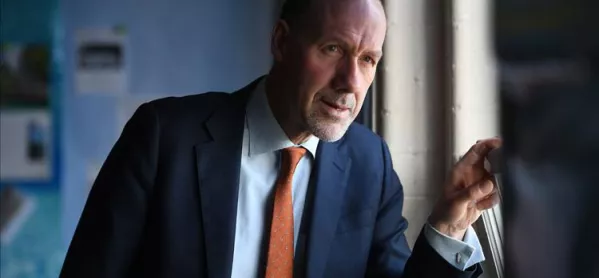- Home
- If schools shut, ministers must suspend accountability
If schools shut, ministers must suspend accountability

A few years back, in the middle period of my time as a headteacher, the school community was hit by a brief but virulent outbreak of flu. On one day around 25 per cent of students and a similar proportion of staff phoned in sick.
I remember the local media picking it up as a story, and I said in passing the school felt like the Derbyshire village of Eyam in the 17th century where, remarkably, the villagers chose to seal themselves off to try to halt the spread of bubonic plague.
It seemed a vaguely amusing analogy at the time, and within days we were back into the school routines of lessons, assemblies and examination revision.
Now not much feels funny, as the anxiety provoked by the prospect of a coronavirus epidemic spreads.
I wrote in my blog last week about what leaders across schools and colleges were doing - taking national public health guidelines, evaluating their own context, and keeping their communities reassuringly informed.
Looking ahead
Since then, the sense of crisis beyond the school gates has deepened. There’s been talk that schools could close for up to two months if the outbreak intensifies - raising the concern that GCSEs and A levels could be disrupted. In Italy, the decision has already been taken to shut all schools for 10 days.
The trouble is that any decision to close schools in this country may be weeks or months ahead, or may not happen at all. If they do close it might be for a few days, or a few weeks, or a couple of months. It might happen in some areas, but not in other areas. We just don’t know.
So now it’s about looking ahead with not much idea about what the horizon looks like. What will the implications be for our own institution if we were instructed to close? How would we help children to keep learning? How would we keep preparing young people for important exams?
Some schools and colleges will be well set up with digital resources that pupils may be able to access at home. In truth many won’t. The provision of technology across the education sector is woefully uneven.
Leaders may be thinking about whether staff could record videos or podcasts; about whether there are online resources they could make available. Some will be thinking about how to get revision materials together in-house, such as packs of past papers.
What the government can do for schools
All of this is unprecedented and we wish it wasn’t happening.
But it is. And the government needs to support schools and colleges by ensuring its information remains simple, clear and direct. It could help by curating examples of online resources that might support the national curriculum.
But there’s something even more significant that the government could do.
In this country we use public tests and exams for two reasons - to judge the attainment of pupils and to measure how well schools and colleges are doing. This latter function - accountability - is obsessive and debilitating. As soon as even a handful of schools are required to close, then those performance tables become invalid. How could we possibly make a judgement about school A (which stayed open) against school B (which was forced to close).
That’s why the government could signal that in the event that numbers of schools and colleges have to close then the performance measures at key stage 2, GCSE and post-16 would be put on hold for this year.
This would send out a powerful and reassuring message. It would signal to leaders and teachers that their national mission at a time of potential crisis is solely to do all they can to help children to learn.
Individual schools would decide whether or not to run the key stage 2 tests in the confident knowledge that whether they did or not, the results would not be used in performance tables.
Come what may, everything possible will be done to make sure students are able to complete GCSEs and A levels without detriment, but that will be a big enough job on its own without also worrying about Progress 8 and the rest of the accountability paraphernalia.
This isn’t just good for pupils and teachers, allowing them to focus on what matters most. It would be widely appreciated by parents too - a sign of the teaching profession calmly and resolutely keeping the show on the road, looking after children’s education when they’re in school, and planning for every contingency in the event of closure.
It may be, of course, that it never comes to this. But, as we have seen in recent weeks, events are unfolding at an alarming rate.
All the more reason therefore to unleash teachers to focus on just one thing - supporting children and young people in achieving success in school now and then, if necessary, in the event that they are having to spend some time at home. This would be a national mission led by the teaching profession itself. Accountability measures will survive this crisis. So let’s just focus on our pupils and students.
Geoff Barton is general secretary of the Association of School and College Leaders
Keep reading for just £1 per month
You've reached your limit of free articles this month. Subscribe for £1 per month for three months and get:
- Unlimited access to all Tes magazine content
- Exclusive subscriber-only stories
- Award-winning email newsletters



